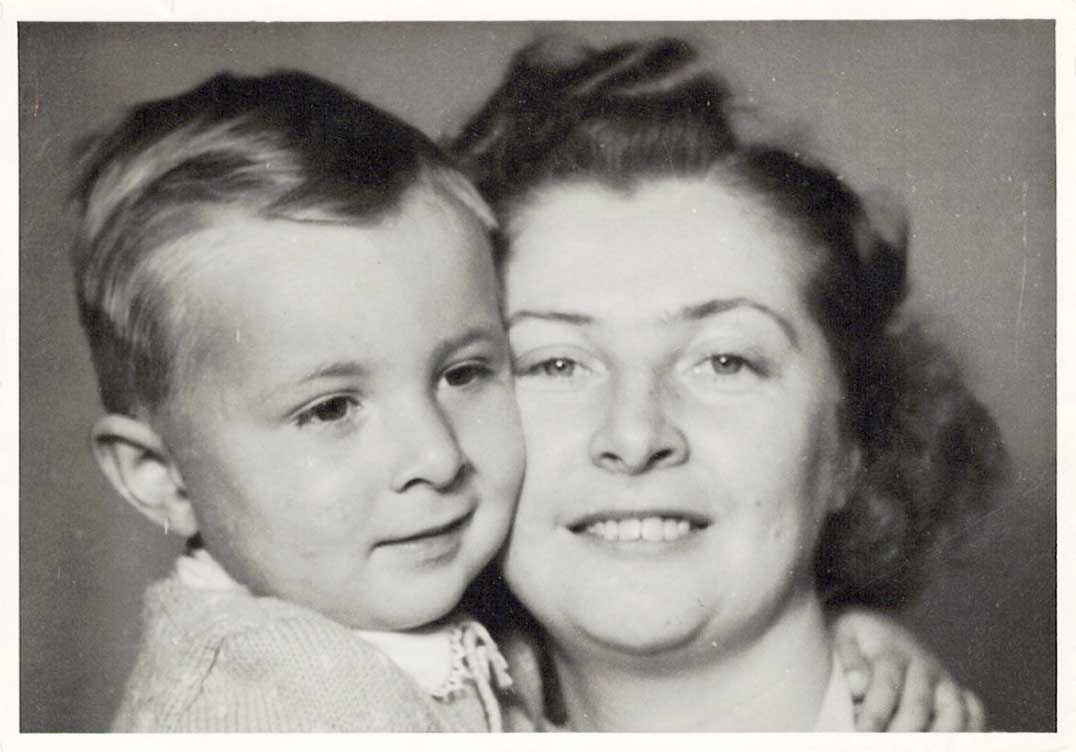SUDBURY—Step out onto the main street of any community on Manitoulin Island, look to your left and then to your right, your gaze will have passed over at least two projects that in good part owe their existence to a man called Stig. Stig Puschel was laid to rest in Sudbury this past weekend following a long battle with cancer, a battle he faced with stoic practicality and devoid of complaint, choosing instead to walk his path through the Valley of Death with courage, dignity and plenty of his trademark humour.
It is no exaggeration to say that Mr. Puschel’s hand has impacted practically each and every Island resident, over the course of his 30-year career with FedNor he is conservatively linked to more than $180 million of economic development funding that found its way to these shores—and a good portion of that funding came because of Mr. Puschel’s passion for Manitoulin and his willingness to stand before his superiors’ desks and fight for those projects he believed would benefit the region.
Mr. Puschel was born in 1945 and came to Canada 10 years later by air, with a set of destination tags around his neck. By the account of his nephew, Paul Gomirato, the young Stig was a precocious youngster who quickly won the admiration and respect of the pilots, getting tours of the cockpit and asking questions that were an early harbinger of an intellect that would be come legendary in government circles.

Stig studied political science at Carleton University, went on to advanced studies at Switzerland’s University of Basel and research studies on East German politics at the Erlangen Research Institute in Paris.
That early globetrotting would later serve him in good stead, laying down a multi-cultural foundation which informed his stint writing cabinet documents for the Secretary of State.
He went on to serve with Industry Canada, FedNor, where he discovered, and by all accounts fell in love with, Manitoulin Island.
An avid fisherman, Stig would wile away many hours on the water, particularly at his camp on Lake Penache and many of those sharing stories during and following the celebration of his life at Sudbury’s Jackson and Bernard Funeral Home referenced pleasant afternoons spent in his company.
It is said that you can tell the quality of a man by the company he keeps. Stig Puschel kept plenty of quality company. The officiate at his celebration of life was Gerry Lougheed, whose own dry wit and presence helped to bring Stig into the room as he reminded those in attendance of who it was they had come to honour.
Marg Hague of Gore Bay, a now retired longtime manager of LAMBAC and a close friend of Stig and his wife Donna, was one of four people to provide eulogies at the service.
“When he said ‘I am from the government and I am here to help,’ he was,” recalled Ms. Hague.

She brought reminiscences from many of those who knew and worked with Stig on projects down through the years, including the Gore Bay Museum’s formidable curator Nicole Weppler.
“Nicole had this to say: ‘He was very erudite, accomplished, knowledgeable about everything from politics to philosophy; he could talk about Aristotle in one breath and discuss fine wine and food the next. He was highly intellectual and could adapt to everything. He understood the essence of every person he met and had a wonderful sense of humour. He was a true Renaissance man’.’”
Billings Mayor Austin Hunt, Canada’s longest-serving municipal servant, was very fond of Stig. “He was someone you could talk to, no project was too small or too big, he was interested in everything,” he said.
Former Assiginack Reeve Dave Ham, a serial entrepreneur who during his time as a public servant worked on many projects with Stig also considered him a good friend “a great guy and super to work with.”
Former Assiginack economic development officer Rob Maguire cited the early development of the hangars at the Manitoulin East Municipal Airport and the community’s waterfront development study as examples of some of the projects Stig worked on in that community.
Another project that perhaps better demonstrates the tenacity and passion of Stig when he believed in a project was Debajehmujig’s Creation Centre in Manitowaning. That project had stalled and was in serious danger of falling by the wayside until Stig stood in front of his superior’s desk and fought passionately, and doggedly, to win the day.
Ms. Hague noted that May 5, the day of the celebration of life, would have been Stig and his wife Donna’s 34th wedding anniversary. “Stig was a good friend and mentor to me for 40 years,” she said, quoting a line from Gore Bay poet Lynne Gerard: “We cannot escape the blowing of life’s wind, but we can make sure the seeds we leave behind are seeds of love and understanding.”
“The world is a better place because you were in it,” she concluded.
Waubetek manager Dawn Madahbee-Leach spoke next. “We called him ‘Zhisheny’,” she said, explaining that is the Anishinaabe word for uncle. “Uncle Stig. Like a favourite uncle who shows up bearing a pocket full of sweets, Stig’s passion and support were legendary.”
When a program’s parametres did not fit a project, Stig had a way of making them fit. It led to a new terminology in the Industry Canada ranks: “pretzelizing.” If an Island project didn’t fit, Stig would work his magic to pretzelize it into shape.
Ms. Madahbee-Leach provided what she called a conservative estimate of the number of jobs Stig helped to create in the communities she services. “I did a rough tally and the number comes in at more than 16,000 jobs,” she said.
“Stig put the time into building relationships with our communities,” said Wiikwemkoong Ogimaa Duke Peltier. “He made a huge impact on the economy of Northeastern Ontario.”
“Stig dedicated himself to all that he undertook, helped realize many projects on Manitoulin Island and across Ontario both within his employment and after retirement,” said Algoma-Manitoulin-Kapuskasing MP Carol Hughes in an emailed message to The Expositor. “Over the years Stig earned the respect of many, including within the aboriginal community. On behalf of the residents of Algoma-Manitoulin-Kapsukasing and myself, I extend my deepest condolences to Stig’s wife Donna as well as their family and friends.”
This was a sentiment echoed by Ms. Hughes’ predecessor, Brent St. Denis. “I knew Stig for it must have been 40 years, for long before I went to work for Maurice Foster (the MP prior to Mr. St. Denis),” he said. “It must have been in the late ‘70s that I first met him. He was really committed to the community and if you were sure about what you were trying to do, he would battle with the folks upstairs to make it happen. He was the kind of guy I would have liked to have spent more time with had we lived closer together.”
While FedNor and his passion for service to the community may have come to define much of his life here in the North and on Manitoulin, he was far from being a one-trick pony in any sense of the phrase. Chatting with his friends and associates, a portrait emerges that resembles something of an epicurean renaissance man. He delighted in good food (the preparation of which his “Sweetums,” Donna, was a past master), fine wine for which he had an unerring nose, and a garden whose denizens he could name in both the common and Latin forms.
A forthright jewel shining brightly in the all-too-often murky world of the bureaucracy, Stig Puschel has inspired his successors as to what can be accomplished if you have the insight and empathy and intellect to be able to see how a project will benefit a community. “I aspire to be like him,” admitted current FedNor economic development officer Arik Theijsmeijer.
It is also a measure of how highly Stig Puschel was regarded in all of Manitoulin Island’s communities that he was gifted with an eagle feather during his retirement party and, in an almost unheard of accolade for a civil servant, was a recipient of a Queen’s Golden Jubilee for his commitment to public service.
The celebration of life for Stig Puschel included musical performances by Sudbury musician Jeff Wiseman of some of Stig’s favourite music—including the entrance ‘Heart of Gold.’ It was a tribute to his sense of humour that the recessional song was ‘Knocking on Heaven’s Door.’
The words of Stig himself provide a glance into his character, quoted in an Expositor article reporting his retirement party in December 2005.
“I have been truly blessed to have had the opportunity to be paid to work at a job which I would have done for nothing,” said Stig, adding that most Stig-like of honest caveats, “as long as I could put a roof over my head.”
If there was a universal theme to the celebration of the life and times of Stig Puschel, echoed by friends, colleagues and family, and yes, even those who never had occasion to meet the bureaucrat with a heart of gold, it would be that “we are all better for having known him.”




